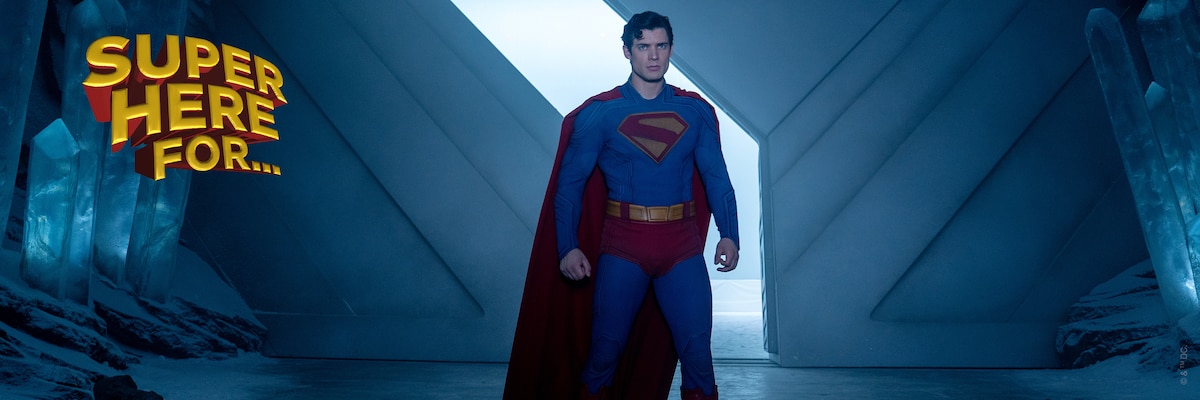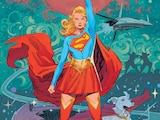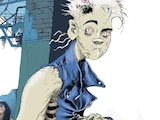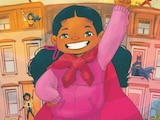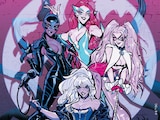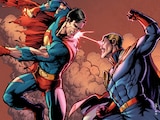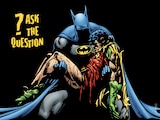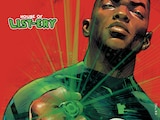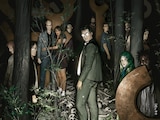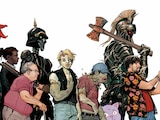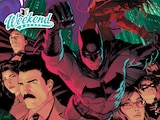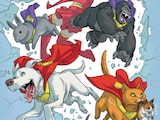It’s a great time for Superman fans, with the Man of Steel soaring into movies, TV, animation and comics. To help us stay on top of it, writer Tim Beedle shares what's grabbed his attention and why in this monthly Super-Family column.
SPOILER ALERT: The following column discusses details from the plot of Superman, including the film’s ending. We suggest reading it only after you’ve seen the movie.
All year long in Super Here For…, we’ve been revisiting the Man of Steel’s past cinematic forays in anticipation of the release of James Gunn’s Superman. Now it’s finally in theaters and I almost can’t believe it. I feel like I’ve been writing and speculating about this movie for years. (Probably because I have.) Obviously, the fact that it’s a new Superman movie is a pretty big deal, but what makes this film particularly noteworthy is that it officially kicks off DC’s new shared cinematic universe.
First, I love that it’s starting with Superman. If you know your comic book history, then you know that the whole superhero concept started with the Man of Steel. It only feels natural for James Gunn and Peter Safran to launch their universe with him as well. Notedly, they chose not to start with an origin story. The world of Superman is one where superheroes have existed for centuries and human civilization has evolved alongside of them.
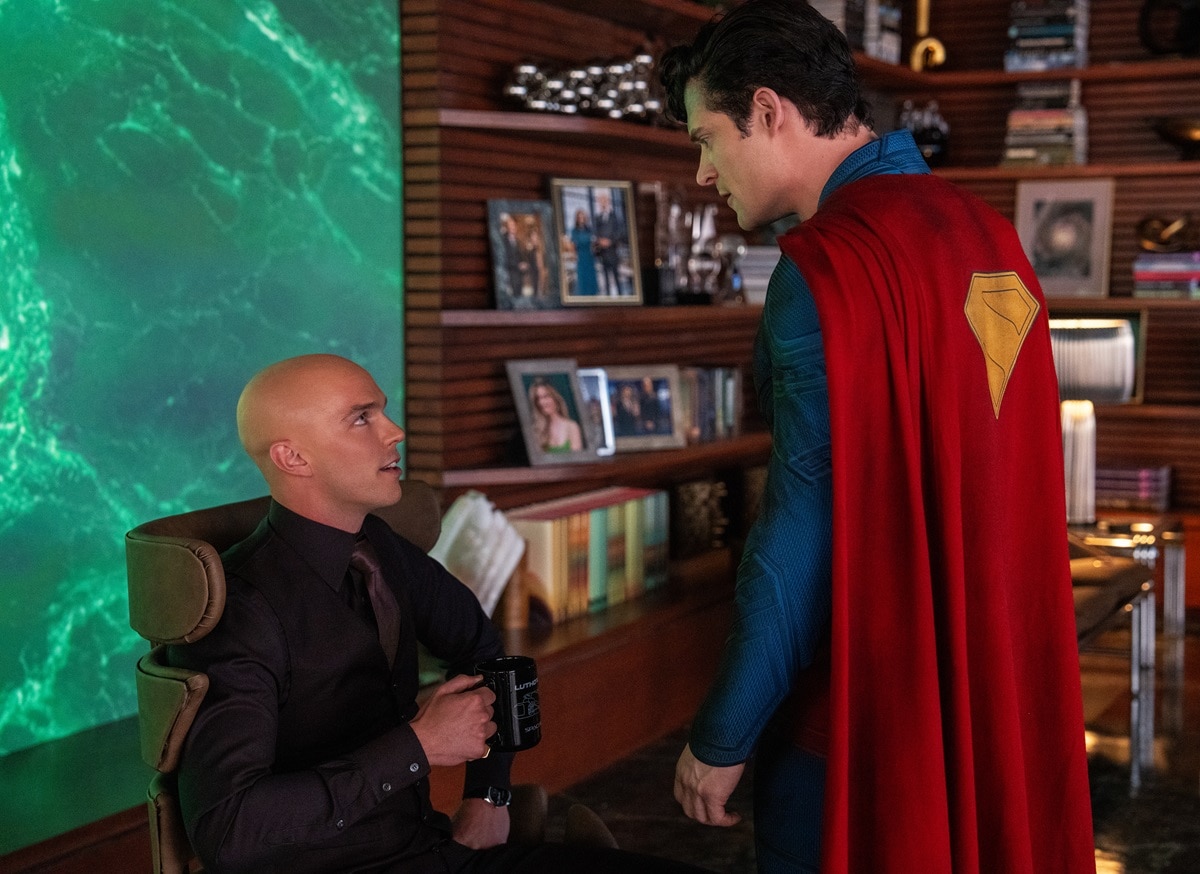
That’s not really a novel idea. It’s basically what we’ve had in the comics for decades. But we rarely talk about what that means—what would humans coexisting with a small, but not negligible minority of superhumans do to society?
A sociologist could have a lot of fun exploring that particular question. For me, though, I’m going to stick with what we see in the film. We learn at the very beginning that superheroes have existed on Earth for 300 years and that Superman has been operating for three. The Justice League itself doesn’t yet exist, but an early iteration of it, the Justice Gang, does. We see at least ten superheroes and villains operating out in the open over the course of the film. However, we know that there are many more. (Some of them, we’ve already met.) Superman’s universe may not yet be the DC Universe we know from today’s comics, but it’s clear we’re headed in that general direction.
That means that the world of Superman may look a lot like our world, but it differs in at least one pretty major way. Superman, like most superheroes, isn’t a part of any government or governing body. He may live in the United States, but he doesn’t represent the USA. In fact, we learn very early on that he’s more than willing to work against its interests.
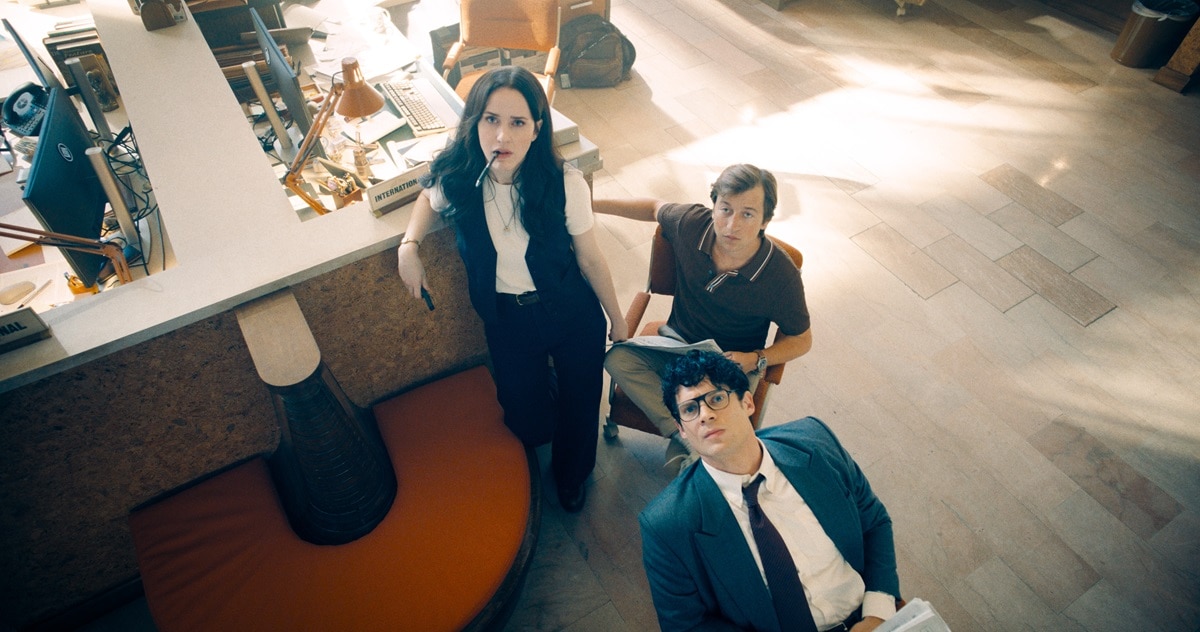
In one of the movie’s best scenes, Lois Lane interviews the Man of Steel about his decision to intervene when the country of Boravia invades the country of Jarhanpur. She asks him some direct, but very fair, questions about if he considered the consequences of his actions and who he consulted prior to taking them. Boravia, we learn, is an ally of the United States, and while the US probably didn’t support their invasion of Jarhanpur, Superman’s decision to stop it and threaten Boravia’s president creates a political incident and ultimately provokes an attack on Metropolis by the Hammer of Boravia, a powerful supervillain.
Superman, of course, doesn’t think any of that is important. All that matters to him is that people were going to die as a result of Boravia’s invasion. That’s exactly what we expect from the Man of Steel, as well as many of the DCU’s superheroes, but our world isn’t so black and white.
But as I said, the DC Universe isn’t our world. Superman’s actions and their consequences do cause a number of people to start seeing him differently and wondering about the sort of things Lois asked him, but it really takes Lex Luthor’s release of the Jor-El and Lara recording to turn the population against him in a significant way. And of course, the people eventually come back to Superman after he saves the world and they learn that Lex had conspired with Boravia to invade Jarhanpur.
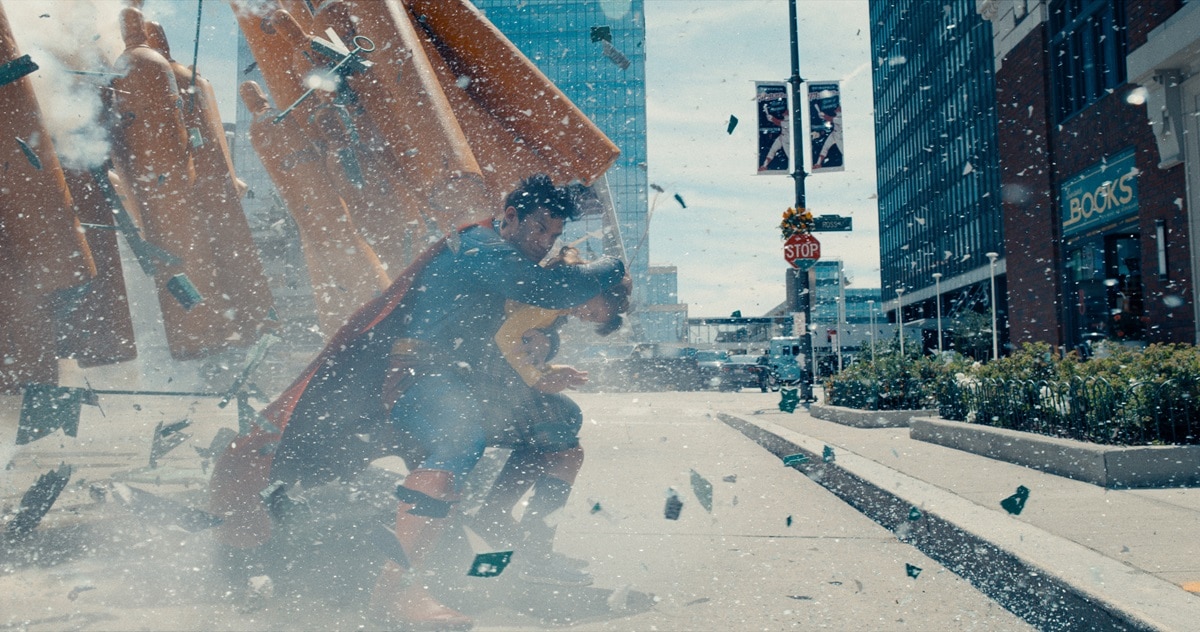
This tells us a couple of things. First and probably foremost, the population trusts the world’s superheroes more than it does its governing bodies. That’s why superheroes are allowed to act with independence and impunity the way that they are. It would be very unpopular if the American government were to start cracking down on superheroes Amanda Waller-style, and unlike Superman and the Justice Gang, the president and members of Congress have to worry about reelection.
The second thing that becomes clear is that this is going to be a problem. When Boravia tries again to invade Jarhanpur, the world’s superheroes intervene even more firmly than they did the first time. And it’s not Superman who does it, but the Justice Gang, who pointedly refused to get involved when Lois asked for their help earlier in the film. If Guy Gardner, Hawkgirl and Mr. Terrific were initially trying not to rock the boat, by the end of the movie they’ve decided doing the right thing is more important.
In other words, Superman’s view on getting involved and possibly working against the government’s interests is spreading. That’s something the movie alludes to at the end when General Mori tells Rick Flag, Sr. that it’s a good thing he’s not worried about superheroes because it’s essentially become their world now.
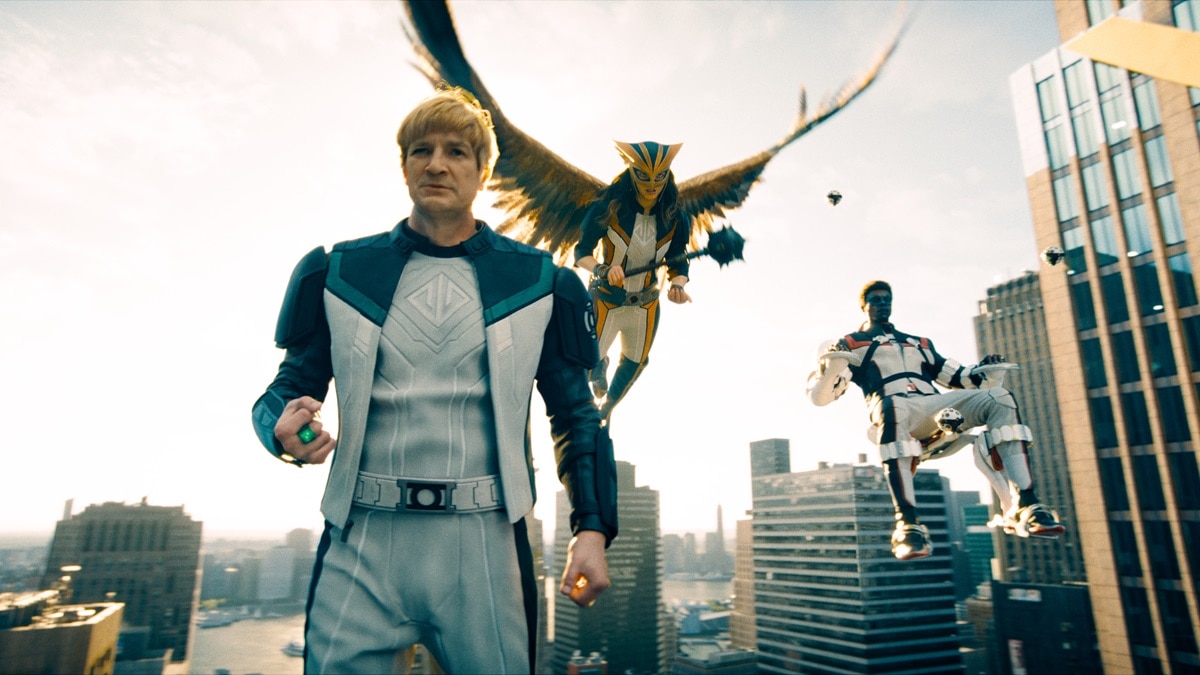
What’s interesting about that scene is that I don’t think I really paid attention to it the first time I saw the movie. It was the second time I saw Superman that I took note. That’s pretty ironic because when it comes to DC’s new cinematic universe, this line by General Mori may be one of the biggest teases Superman gives us. Theirs truly is a world of gods and monsters now and I have a hard time believing the world’s human leaders are going to be okay with letting them run rampant for long.
So, what’s it really like to live in a shared universe where an uneasy balance between elected leaders and powerful independent metahumans must coexist? We’ll find out in future movies and TV shows. Superman is only the first chapter, after all. As Mori alluded, it’s their world…but it’s our new DCU.
Superman, directed by James Gunn and starring David Corenswet, Rachel Brosnahan and Nicholas Hoult, is now in theaters! Click here to get tickets.
Tim Beedle covers movies, TV and comics for DC.com, writes our monthly Superman column, "Super Here For...", and is a regular contributor to the Couch Club, our recurring television column. Follow him on Bluesky at @TimBeedle and on Instagram at @notabard.
NOTE: The views and opinions expressed in this feature are solely those of Tim Beedle and do not necessarily reflect those of DC or Warner Bros. Discovery, nor should they be read as confirmation or denial of future DC plans.
